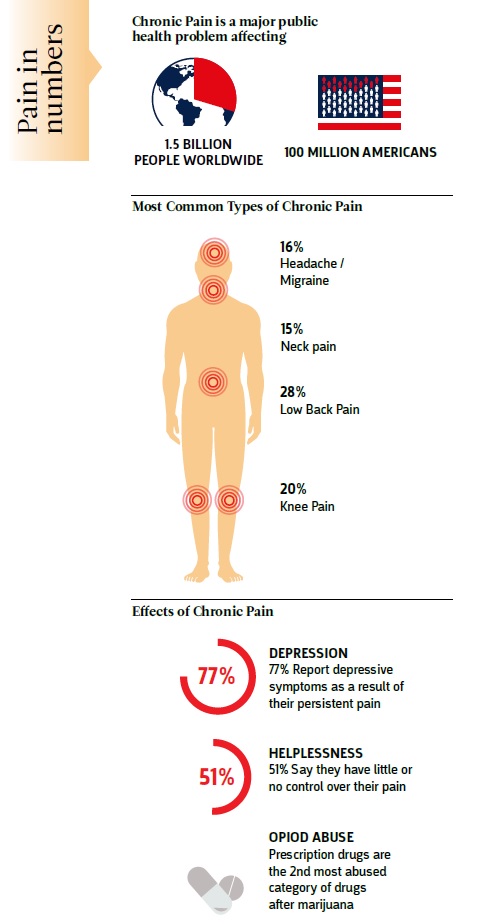![]()
For millions of people affected by chronic pain, taking control of their pain problem would be a dream come true.
More than one third of Americans and 20-30% of the global population suffer from chronic pain – the leading cause of long-term disability. While the cost of medical treatment and loss of productivity to society is estimated in the billions of dollars, individual suffering is beyond measure. Conventional treatment typically involves the prescription of pain medications, which are effective only for short durations, associated with various problematic side effects, and all too often, lead to abuse and misuse.
A joint research study between the University of Haifa and Rambam Health Care Campus is currently developing a new tool for the assessment of individual pain regulation that may bring about a paradigm shift in pain management and reduce suffering for millions around the world. Dr. Michal Granot, a professor of pain studies at the Cheryl Spencer Department of Nursing at the University of Haifa, together with Prof. David Yarnitsky and Dr. Yelena Granovsky, from Rambam’s Department of Neurology, are focused on the construction of individual pain modulation profiles. “Pain modulation profiling can be used as a key predictor for pain onset and treatment outcomes, and may be a step forward in providing the best possible care through personalized therapy in pain management,” explains Prof. Granot.
As pain is a multifaceted phenomenon, the pain experience varies according to several factors, including gender, ethnicity, personality and culture. “Our joint research is addressing unanswered questions including factors contributing to the susceptibility of individuals at risk for developing chronic pain, those who require less pain medications, and those who may benefit from therapeutic intervention,” adds Prof. Yarnitsky. “It can be described as a multi-disciplinary and multi-professional effort,” adds Granot. “As part of the study, the trauma team at Rambam follows patients admitted to the emergency ward for whiplash injuries. Patient data, such as neural activity obtained from fMRI brain scans, psychophysiological assessment of pain threshold, as well as personality and genetic tests, are recorded at a number of points during their hospital stay.
The project has received a major grant from the Ministry of Defense, which supports clinical research that improves the health care delivery affecting military and veteran populations, and advances for everyone else.
In addition to this collaboration, Granot, Yarnitsky and Granovsky are involved in a number of other pain related studies. They have also co-authored several scientific papers and are co-mentoring doctoral candidates studying at the Technion-Israel Institute of Technology and the University of Haifa.
![]()
Prof. Yarnitsky (left) is the Director of the Department of Neurology at Rambam Health Care Campus, Head of the Clinical Neurophysiology Laboratory at the Technion Faculty of Medicine, and former editor of the respected peer-reviewed journal Pain Reports. Prof. Granot (right) is a member of the University’s Faculty of Social Welfare and Health Sciences, and the Haifa Pain Group of the Clinical Neurophysiology Laboratory. Her research interests also focus on women’s health and gender differences in pain perception.


